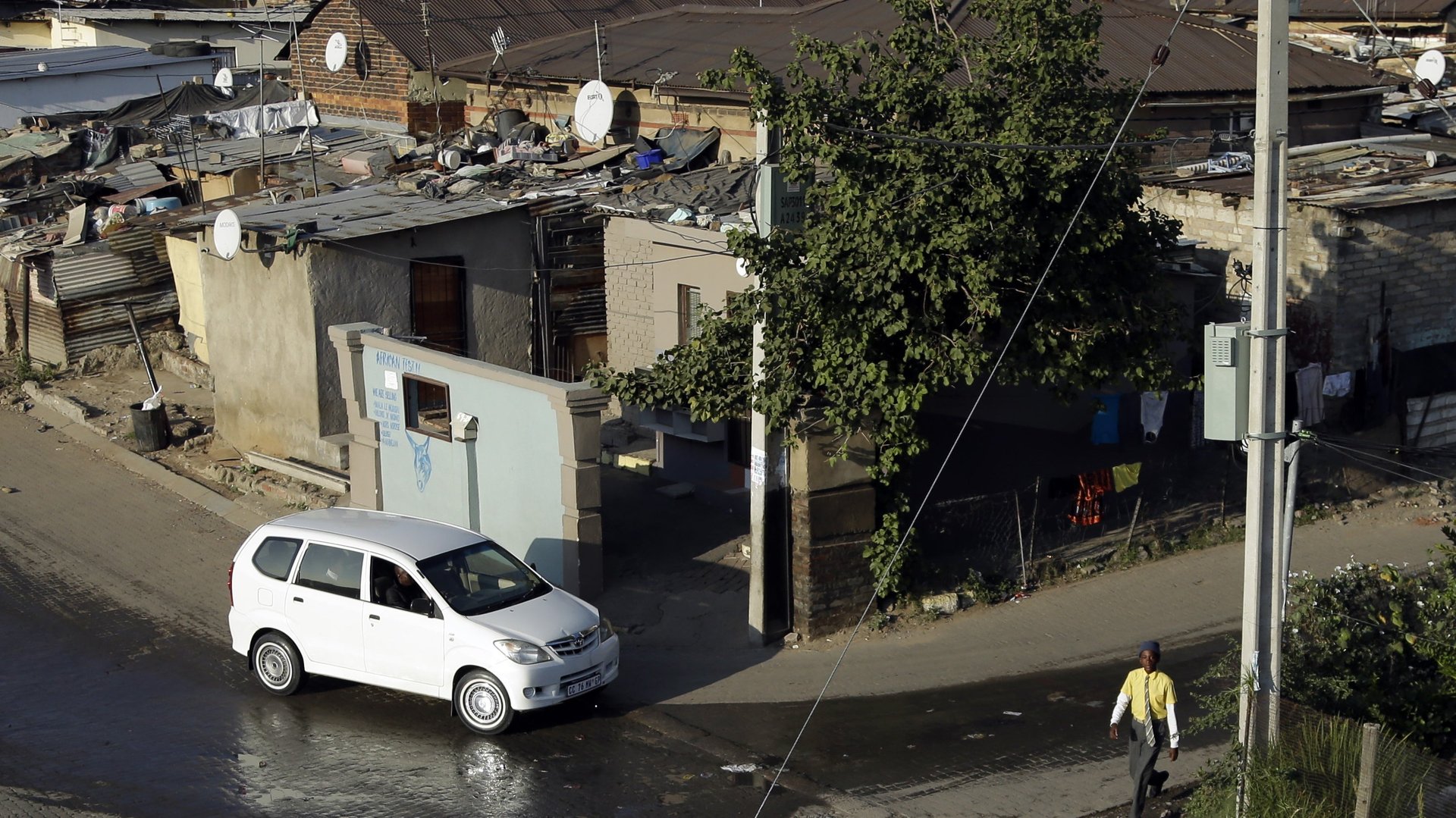South Africa has to fix its tax system to meet rising social benefit demand
South Africa is one of the few countries in the developing world to have a significant social spending program–it stands out in Africa.


South Africa is one of the few countries in the developing world to have a significant social spending program–it stands out in Africa.
But in order to maintain it, the country will need to increase its value-added tax (VAT) says the OECD.
The OECD acknowledged the South African government had accelerated social progress over the past 20 years–with a social spending program that has lifted millions of South Africans out of poverty through monthly cash transfers to the poor, and public investment in social housing, education and health.
In a country with a large income gap: a Gini coefficient of 0.65–one of the highest in the world–and with 1 in 4 South Africans unemployed, the South African government’s social grants are an important source of income relief for many South African households. South Africa’s governing party—the African National Congress (ANC)—is under pressure to implement more redistributive policies for the majority of the country’s poor black citizens, while contending with slow economic growth, forecasted at a meager 2% this year
In 1993, one year before South Africa’s historic 1994 election, only 2.5 million people benefitted from government social grants, by the end of 2014, more than 16.4 million indigent South Africans had access to government grants.
Over the past 5 years, government’s overall spending on social services–which includes education, health, social grants, housing and employment schemes–has increased as a share of total expenditure to 60%.
But government revenue has not kept up.
The OECD survey argues that despite the fact that South Africa has a well-administered tax collection system, the country is collecting less in tax revenue than other OECD emerging economies (pdf, pg. 36).
By increasing tax rates on higher incomes, personal income tax, corporate income tax and reducing tax deductions, the OECD argues that South Africa will be able in a better position to deal with its growing expenditure demands.
The question is: who should bear the burden of increased taxes?
Households and individuals already pay personal income tax, as well as value-added-tax (VAT)–a 14% tax on goods and services paid by all South Africans. Both taxes have remained stable over the years, contributing an average of 26% and 39.5% to overall tax revenue over the past five years.
While on the other hand, South African companies are paying less tax than they did 20 years ago:
Tax reform is high on South Africa’s agenda, as the South African government currently has a tax review commission investigating ways to broaden the county’s tax base.
In its preliminary findings, the Davis Tax Commission has recommended that the South African government should increase value-added tax (VAT), as opposed to increasing personal and company tax.
The commission found that while an increase in VAT could marginally increase income inequality by 0.013%, it would have the least constricting effects on GDP growth–while an increase in company tax could further stifle job creation.